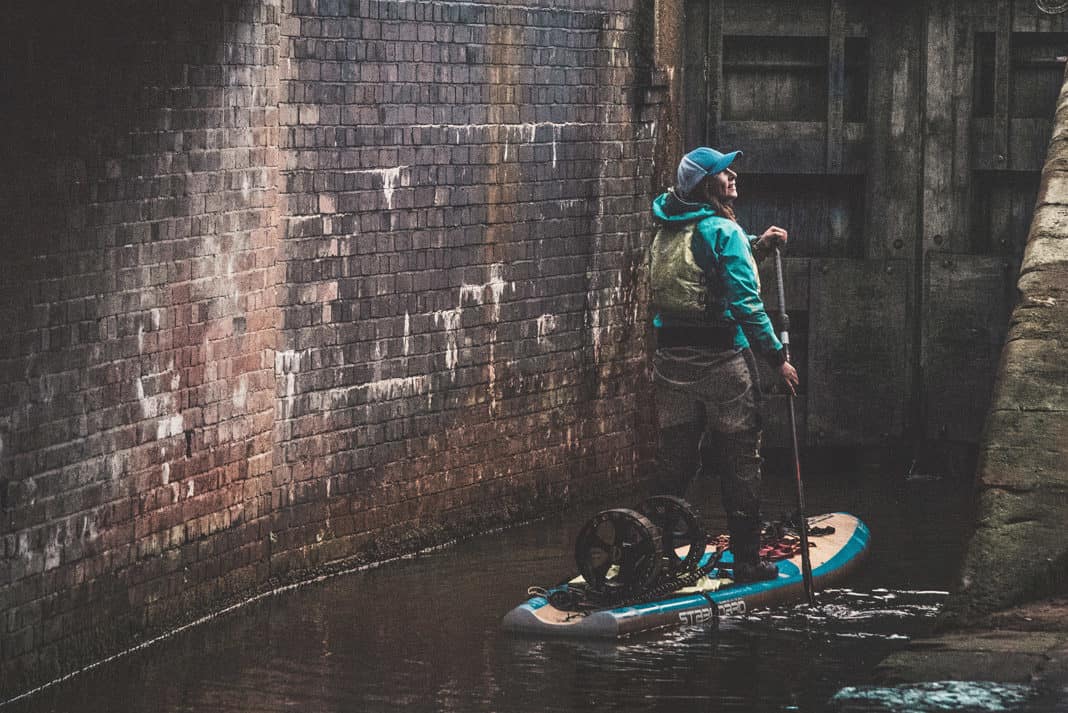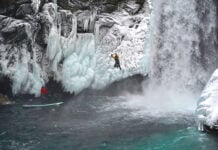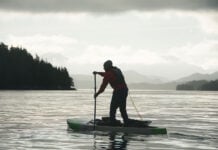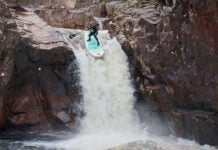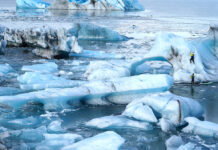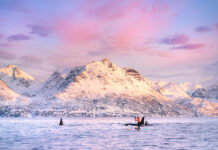It Might Look Like A Strange Place For A Paddleboard, But What Appears To Be A Dead End Is A Common View For Welsh Paddler Sian Sykes. In May she became the first person to paddleboard around Wales via its canals, rivers and open coast.
Locks were just one of the many obstacles Skyes faced. The 1,000-kilometer two-month journey was unsupported and included paddling in fast flowing water, across busy shipping channels, through a military shooting range, and along exposed headlands.
“It’s exceeded my wildest dreams,” said a cheery Sykes when reached by phone on a dreary weather day more than halfway through her trip. “I never want to stop. I’ve seen dolphins and seals and I get a bird’s eye view of the water—it’s been a wonderful way to reconnect with my country.”
Euphoric natural connections aside, Sykes’ aimed to use the expedition to highlight the problem of marine litter, and single-use plastics in particular.
The SUP expedition against SUP (single-use plastics)
There’s no end to the plastic she found on route. “What gets dropped on the ground ends up in the waterways and in the sea,” she says.
The grim facts Sykes discloses are softened by her effervescent personality. She’s quick to tell me the United Kingdom discards a whopping 38.5 million plastic bottles each day, 80 percent of marine litter originates from land-based sources, and one million sea birds and 100,000 mammals die every year from marine litter. And that’s just skimming the surface of the plastic pollution problem.
Sykes also shares these facts with fishermen, dog walkers and boaters—anyone she meets along the way. This isn’t simply awareness raising—she also asks everyone she meets to make a pledge to give up one single-use plastic item. “To use milk from jars instead of cartons, or a shampoo bar instead of a plastic bottle, or to stop buying single-use water bottles altogether. People are doing, not just talking,” she says.
To Practice What She’s Preaching, Sykes Went Without Single-Use Plastics On The Expedition. Alternatives to everyday essentials—like a bamboo toothbrush—were easy. Compactly managing all her food in reusable containers took more research.
“If I can go on a challenging expedition for two months without single-use plastics, no one else has any excuse,” she says.
Photographer Ian Finch followed Sykes from shore on three two-day stints throughout the expedition. He took this photo in Grindley Brook Lock. Sykes had already portaged her kit up the three-tiered lock when he grabbed this snap.
It’s a special expedition,” Finch says. “I hadn’t spent time with someone who was so knowledgeable about plastic pollution in the United Kingdom. Just two days had a profound impact on how I use single-use plastic in my world and changed the way I buy food.



